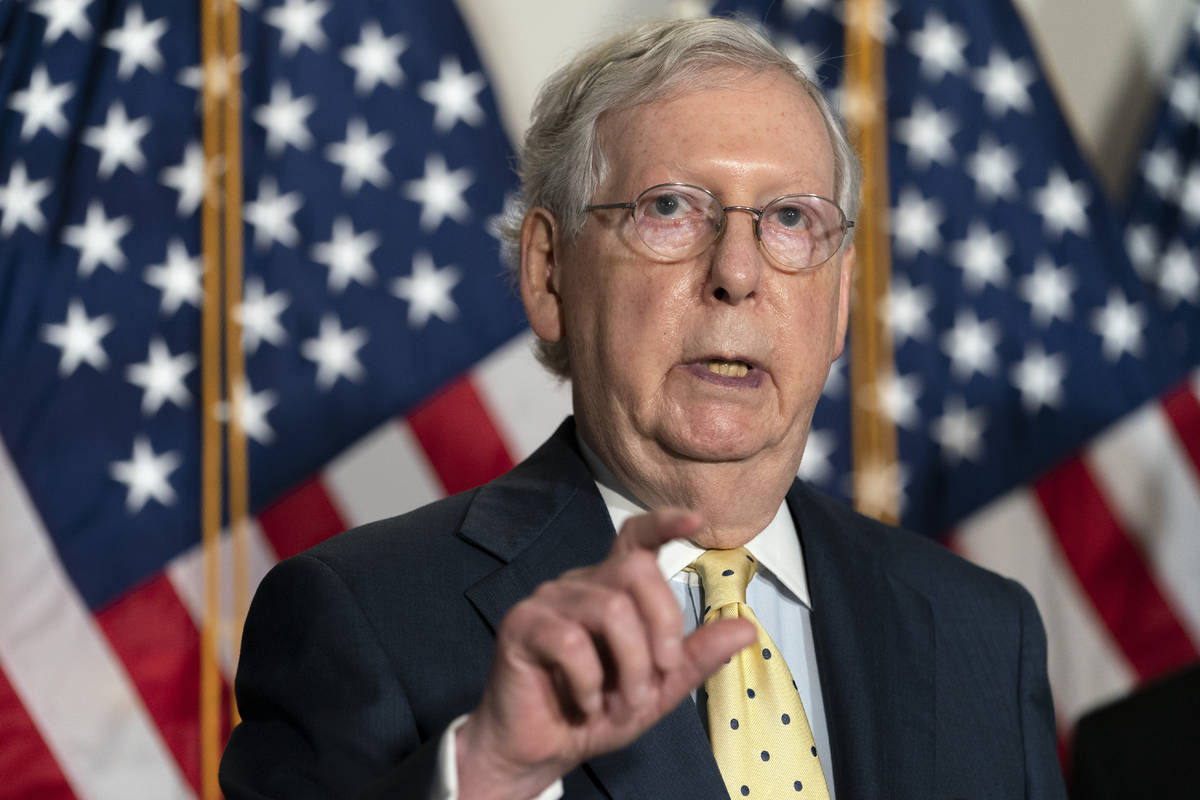STEVE SEBELIUS: For court nominees, only one rule counts
Joe Biden said in 1992 that if a Supreme Court vacancy were to occur in the closing months of then-President George H.W. Bush’s term, the Senate should not proceed with hearings. Biden was dead wrong.
Mitch McConnell in 2016 actually did ignore President Barack Obama’s nomination of Merrick Garland for most of the final year of Obama’s term, citing what he called the Biden Rule (note: Not A Thing). McConnell was dead wrong.
And now, in 2020, Senate Democrats are saying McConnell should not take up any nomination from President Donald Trump to fill the seat left vacant by the death of Justice Ruth Bader Ginsburg. The Democrats are dead wrong.
The Constitution is entirely silent about the political calendar when it comes to judicial nominations, saying in Article II, Section 2 only that the president “shall nominate, and by and with the advice and consent of the Senate, shall appoint …judges of the Supreme Court.”
That means whenever a vacancy occurs during a president’s term, even at the end, the president shall nominate judges, and the Senate shall give its advice and consent. Which is to say, meet with the nominee, hold hearings in the Judiciary Committee and hold an up-or-down vote on the floor.
That may not have happened in 1992 (there was no pending nomination when Biden made his remark, so we will never know). It certainly didn’t happen in 2016, when McConnell ignored his constitutional obligations. And, if Democrats had their way, it won’t happen this year.
But it should, regardless of how people may feel about the president, the majority leader or the nominee. The Constitution guarantees a process, not a result. And we allow elected officials to ignore it at our peril.
The argument McConnell used in 2016 was vacuous — the people, he said, should have a voice in filling the seat. He conveniently ignored the fact that the people did have a voice, in 2012, when they re-elected Obama to a four-year term as president.
Today, Democrats are voicing the same argument McConnell made, which they rejected just four years ago. They ignore the fact that the people did have a voice in 2016, when they (at least in the Electoral College) elected Trump.
There’s a certain amount of emotional satisfaction for the Democrats in this — McConnell essentially stole a Supreme Court seat in an extra-constitutional act of contempt for his oath to the Constitution and the institution that he served. Why not use his own words against him?
So in just four short years, McConnell has gone from quintessential villain to … Democratic role model?
Some Republicans gamely try to argue that the McConnell Rule (note: Not A Thing) is more nuanced because Obama was a Democrat and the Senate was controlled by Republicans in 2016 and, this year, Republicans hold both the Senate and the executive. But you will search the Constitution’s text in vain for justification of that hair-splitting; to be sure, the founders created a government of separated powers in anticipation of power struggles of this kind.
Democrats will argue that the illegitimacy of McConnell’s 2016 actions and the consequences of replacing a liberal justice such as Ginsburg with a conservative are too important to allow a vote. Women’s rights, gay and transgender rights, and health care coverage (including the Trump administration’s ongoing legal battle to repeal the Affordable Care Act and its protection for pre-existing conditions) justify ignoring Trump’s pick, they say.
And while those are fine subjects to discuss in confirmation hearings and floor debate, and while they are legitimate grounds for Democrats to vote “no,” they are not valid reasons to abandon the Constitution’s requirements.
In fact, neither side has yet presented such an argument.
If we are ever to begin to stem the tide of corrosive, tribal partisanship that has gripped the country in recent years, we are going to have to start with reinvigorating respect for the institutions that govern the nation. That, in turn, starts with those elected to represent the people showing that respect.
The bottom line is this: A president has the power to make nominations to fill Supreme Court vacancies, and the Senate has the power and obligation to give advice and consent, a yes-or-no vote on each nominee. This remains the case in a president’s first year in office or his last.
Call it the Madison Rule. And that is most definitely a thing.
Contact Steve Sebelius at SSebelius@reviewjournal.com or 702-383-0253. Follow @SteveSebelius on Twitter.









